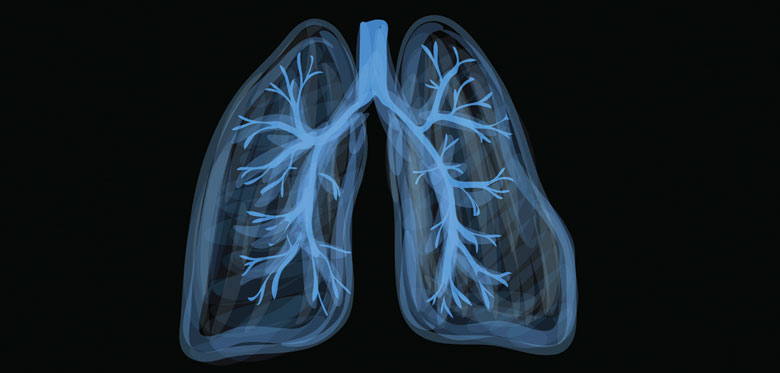Lung Cancer Awareness Month takes place every November in the UK. The aim of the campaign is to encourage people displaying the common signs of lung cancer to visit their GP. Lung cancer is the most common cancer in the world and over 46,000 people are diagnosed with it in the UK every year. It is therefore vital everyone knows the symptoms of lung cancer because early diagnosis can make a big difference.
The Roy Castle Lung Cancer Foundation have launched a ‘Follow my Lead’ campaign to coincide with the awareness month which is aimed to improve the conversations around lung cancer. The charity is urging that we listen carefully to what people with lung cancer have to say and take cues from them to avoid making crass or hurtful comments. We need to ‘follow their lead’ because every diagnosis is different – and so is everyone’s way of dealing with it.
Signs and symptoms
Lung cancer does not discriminate. Anyone can develop lung cancer, even if you are a non-smoker. If you have lungs then you can get the disease so it is very important that everyone is aware of the signs and symptoms. The most common are:
- Persistent cough that lasts three weeks or more
- Breathlessness
- Repeat chest infections
- Chest and/or shoulder pain
- Loss of appetite and/or unexplained weight loss
- Change in a long term cough, or a cough that gets worse
- Coughing up blood
- Unexplained fatigue or lack of energy
- Hoarseness
- Finger clubbing
- Blood blots
Some of the symptoms of Covid-19 and lung cancer can be very similar such as a cough, breathlessness and fatigue. With Covid-19 the symptoms usually present themselves suddenly and without warning whereas the symptoms that are more suggestive of lung cancer are unexplained, persistent and last for over four weeks.
If you do have any of the above symptoms it is important that you take a PCR Covid-19 test and follow the Covid-19 guidelines whilst arranging an appointment with your doctor. Most GPs are conducting remote appointments at the moment and so if your PCR result is negative, they will probably refer you for a chest x-ray or direct to the lung cancer service for a CT scan. If your PCR is positive there might be a slight delay in an appointment being arranged for the investigations in accordance with the current Covid19 guidelines.
It is always important that if you have any concerns to get a check-up. It might be nothing serious but it is always worth getting it checked out.
Who’s affected?
Lung cancer usually affects people over the age of 60. Younger people can develop lung cancer but that is rare.
Causes
It’s a common misconception that only those who smoke get lung cancer. Unfortunately, people who have never smoked can develop lung cancer too! Smoking is however the most common cause (accounting for around 72% of cases). This is because smoking involves regularly inhaling more than 60 different toxic substances which are known to be carcinogenic (cancer-producing). Other causes of lung cancer are:
- Passive smoking
- Exposure to asbestos, radon gas and other occupational chemicals such as arsenic, beryllium, cadmium, coal and coke fumes, silica and nickel
- Diesel fumes
- Poor diet
- Lack of exercise
Prevention
Anyone can get lung cancer and it is therefore important you do everything you can to reduce your risk by:
- Stopping smoking (if you are a smoker)
- Avoiding second hand smoke
- Eating well
- Drinking less alcohol
- Exercising regularly
- Reduce your exposure to air pollution
- Check your home for radon gas
- Ensuring you wear all of the correct PPE at work when coming into contact with asbestos and other occupational chemicals
Support and guidance
Being diagnosed with lung cancer can be frightening and it’s normal to feel overwhelmed. Talking about feelings and concerns is often helpful and you can do this with friends and family, or with specialists such as your cancer care nurse or GP. You may also benefit from a referral to a counsellor or psychologists and some GP practices have counselling services as part of their team.
There are also a number of organisations who can offer support, guidance and assistance such as:
British Lung Foundation - helpline 03000 030 555
The Roy Castle Lung Cancer Foundation - 0333 323 7200
Macmillan Cancer Support - 0808 808 00 00
If you or a family member have developed lung cancer and believe this to be related to exposure to asbestos or other occupational chemicals then we can help. We have specialist industrial disease solicitors who are experienced in helping people claim compensation for these illnesses, including making claims on behalf of people who have lost a loved one to an asbestos related illness. If you would like to speak to one of our specialists please ring us on 0161 696 6235.




Comments